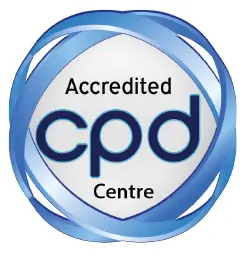Is This for You?
Those who wish to start their own business, those looking for work, as well as employees who wish to learn more about business structure and law.
Award and Associated Qualifications


Those who wish to start their own business, those looking for work, as well as employees who wish to learn more about business structure and law.

The structure of a business and the legal requirements for directors, shareholders and company secretaries are crucial; not least for Executive Assistants and finance professionals who often have to help prepare AGMs, business reports, prepare and file accounts and manage bank accounts, etc.
If you have, or are thinking about setting up your own business, this course will provide you with an essential grounding in business structure and law.
The Introduction to Business Structure and Law course is split into three lessons. The first considers the different types of business and the terms relating to each; AGMs, EGMs, the roles and responsibilities of shareholders, directors and company secretaries. In lesson two you will learn about business reporting, filing deadlines, accounts audits, contracts, bank accounts and loans and security. Finally, lesson three covers taxation, insolvency, employer obligations under the Health & Safety at Work Act and employment contracts.
Having completed this course, you will have the Pitman name on your CV, which is highly respected by employers. Like all our courses you can study at a pace and times to suit you, supported by our course advisors when needed.
Having completed Introduction to Business Structure and Law, you will be well-placed to go on to take the Understanding Business Accounts course.
Lesson One: Why different types of business exist, terms relating to business, AGMs and EGMs, roles and responsibilities of shareholders, directors and company secretary
Lesson Two: Business reporting, filing deadlines, accounts audit, contracts in business, business bank accounts, loans and security
Lesson Three: How different types of business are taxed, insolvency, employer obligations under the Health & Safety at Work Act, employment contracts.
"*" indicates required fields
The purpose of this course is to gain an overview of business structure, business reporting and aspects of law in this field.
There are no specific pre-requisites required.
Wherever possible our training is tailored to your needs. The cost of our training programmes depend on the course(s) you choose and varies according to duration and breadth. Rest assured we have a number of payment options available to ensure the cost of training is affordable and can be worked alongside your other financial commitments. Common ways people fund their training include: –
Requesting funding from your employers needn’t be a daunting task. Many employers support and encourage their employees with their professional development and consider it a worthwhile investment to fund any training required.
What we can help with:
There may be the opportunity to apply for funded grants that can help towards the cost of training. These include the Skills Development Scotland ITAs and the ReAct programme in Wales. All schemes will have different terms and conditions that will need to be met in order to qualify for a grant and these are managed by each individual centre.
We’d recommend you speak to a Course Advisor in your local centre to find out whether they are registered to offer any such schemes and discuss your requirements further.
* Terms and Conditions apply. Speak to a Course Advisor for full information on the options available to you.
With this certification on your CV and further skills training, you could work towards a number of positions such as Team Leader, Manager, PA, Office Manager for example.